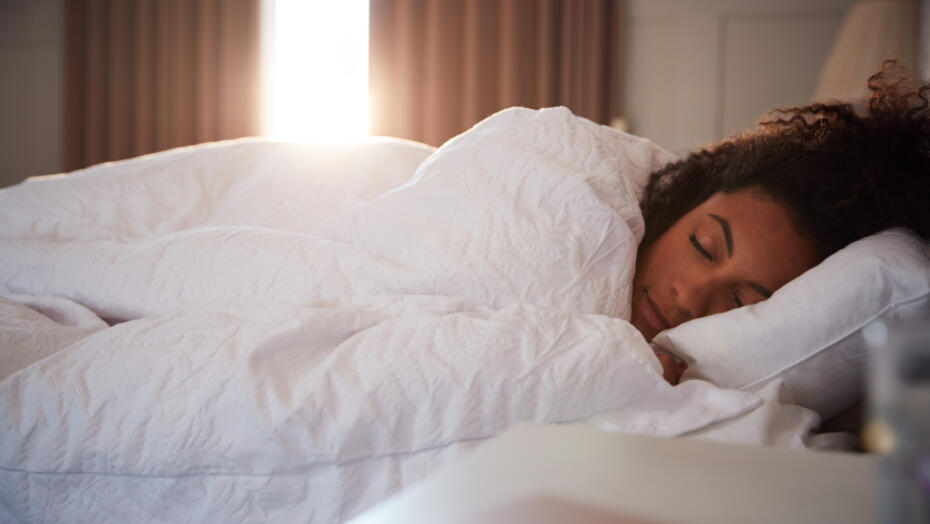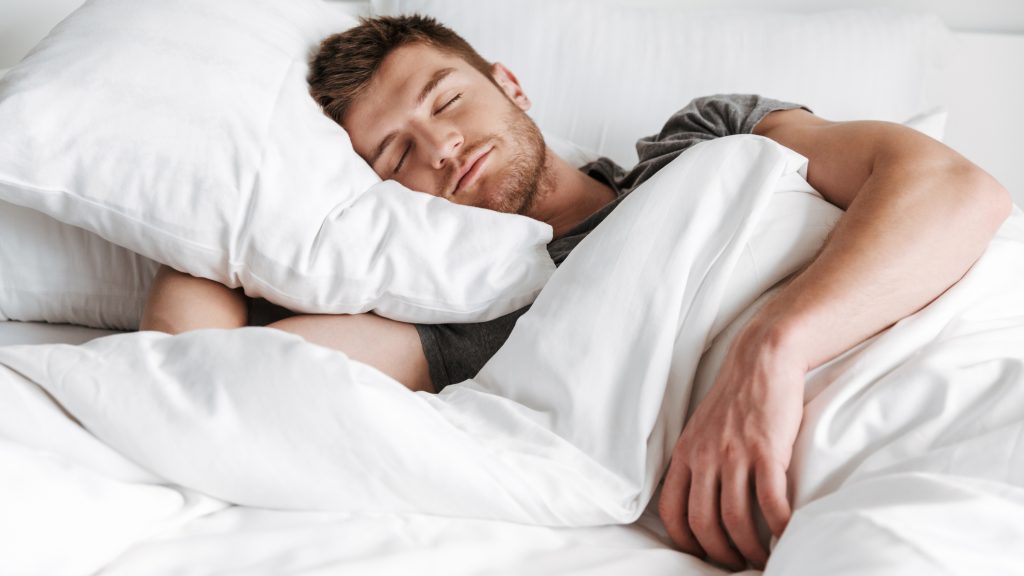If you’ve ever had trouble sleeping, you might be wondering how to fall asleep faster. While your characteristics and needs can impact your sleep patterns, following a few tried-and-true methods can help you achieve restful sleep more quickly.
Relaxation is essential for falling asleep quickly. Relaxation prepares your mind and body to fall asleep. We’ll go over some sleep-promoting activities, such as breathing exercises, meditation, and guided imagery.
Contents
How Much Time Might It Take to Fall Asleep?

Sleep latency, also known as sleep onset latency, is the time needed to fall asleep. A regular sleep latency period is typically between 10 and 20 minutes1. This time doesn’t include the pre-sleep bedtime habits like brushing your teeth, showering, or meditating, but instead, the time spent trying to sleep once in bed.
According to the National Sleep Foundation, a sleep onset latency of 15 minutes less than is considered healthy, a sleep latency of 16 to 30 minutes is considered normal, and a sleep latency of more than 45 minutes is considered poor sleep quality. Outrageously short or long periods of sleep latency might well indicate sleep health issues.
Sleep Health and the Time It Takes to Fall Asleep – How to Fall Asleep Fast
If it takes you less than ten minutes to fall asleep, you may be sleep deprived. Taking so long to fall asleep, on the other hand, is a symptom of insomnia and may be a sign of poor sleep.
Sleep latency also has an impact on sleep efficiency, which is a measure of sleep quality that describes the time spent sleeping versus lying in bed. Individuals who have longer sleep latency periods have far less effective sleep by definition.
Many people with insomnia have trouble trying to shut off worries once trying to fall asleep. A good sleeper can rapidly transition from frequent wakeful thinking to a calmer, more imagery-oriented state at bedtime. In contrast, someone suffering from insomnia may lie awake planning as well as problem-solving, preventing them from completely relaxing. People who have difficulty falling asleep frequently exhibit highly elevated physical signs of stress, including a higher temperature, tense muscles, and a faster heartbeat.
Advice for Falling Asleep Quickly – How to Fall Asleep Fast

Strategies for falling asleep faster typically aim to reduce bedtime stress and induce a relaxation response. Deep breathing, as well as focused attention, are common components of relaxation techniques. Although more study is necessary, some studies suggest that these techniques may aid in the relief of pain, anxiety, stress, as well as other conditions which can disrupt sleep.
Set aside time for resting methods for you and your sleeping habits as a piece of your bedtime routine. Remember to begin your bedtime routine early enough to allow for the suggested amount of sleep for your age group.
How to Fall Asleep Fast – The Military Approach
Military personnel frequently have inconstant schedules and less-than-ideal sleeping conditions, which could also disrupt their sleep patterns12. The army method is a technique designed to assist soldiers in falling asleep in two minutes or less. This procedure consists of the following steps:
Assume a comfortable place and relax each of your facial muscles, including your jaw, eyelids, lips, and brow.
Enable your arms to relax at your sides, first lowering your shoulders.
To relax your chest, begin by taking deep breaths.
Begin by relaxing your bottom portion, working your way down thru every part of your leg to your feet.
To relax your mind, imagine yourself in a peaceful setting, such as stunning scenery, a quiet lake, or a comfortable room in your home. If you have any disturbing thoughts, acknowledge them and attempt to move past them. If you find it difficult to conjure up relaxing pictures, keep reposting a simple phrase to yourself, such as “don’t think.”
How to Fall Asleep Fast – Music for Relaxation
A noisy environment14 can make it hard to fall asleep quickly. Listening to soothing music may help you relax and block out external noises, in addition to lowering any useless or bothersome sounds. Consider creating a playlist that corresponds to an ideal 10 to 20-minute sleep latency window as well as listening to it every night to establish a routine for yourself. If music is too distracting for you, some people recommend white noise for sleeping.
How to Fall Asleep Fast – Muscle Relaxation in Stages
To relieve bodily stress, progressive muscle relaxation17 employs deep breathing combined with muscular contractions and release. Progressive muscle relaxation seeks to promote relaxation by slowly working through all of the major muscle groups. This procedure consists of the following steps:
Stay in bed, close your eyes, and take slow, deep breaths in and out.
For 10 seconds, tense your face muscles. Take several deep breaths to relax and release the tension.
Then, ten seconds later, relax your shoulder muscles. Deeply inhale and exhale.
Rep this step for each muscle group in your body, beginning with your right shoulder and working your way down to your feet. Exclude any areas that cause you pain.
In conclusion
If you’re still having trouble falling asleep since making these changes, talk to your doctor. You could be suffering from a sleep disorder or maybe another underlying condition that is interfering with your ability to sleep. Your doctor can assist you in identifying the problem and developing a treatment plan.

